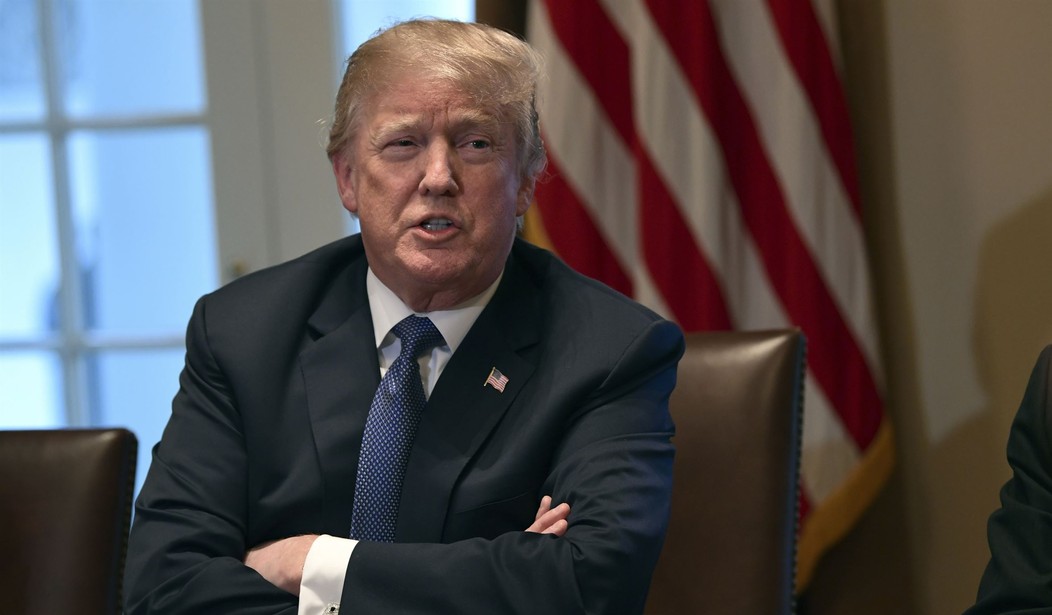One of the right's most common, and best, arguments for the Trump presidency is that it shattered the Republican Party's calcified agenda. Invested in a coalition of various interests and beholden to a pervasive and outdated Reagan nostalgia, the GOP desperately needed new rhetoric and a new approach. For good or ill, President Trump provided both.
The Democrats' effort to come up with a program, separate from anti-Trumpism, suggests they're in desperate need of some disruption as well.
Say what you will about Reagan nostalgia, it's at least fresher than FDR nostalgia, which has largely defined the Democratic Party for the better part of a century. When Democrats look for a policy vision, their framework is the New Deal.
Harry Truman's Fair Deal and LBJ's Great Society were both continuations of the New Deal.
After the 9/11 attacks, New York Sen. Charles Schumer wrote in the Washington Post that the attacks proved "the era of a shrinking federal government has come to a close." This new challenge proved we needed a "new New Deal."
Even the New Deal's biggest competitor, John F. Kennedy nostalgia, has always been about aesthetics and atmospherics. Kennedy's own policy agenda never broke with the New Deal paradigm.
Barack Obama, who had a Kennedy-esque cult of personality, was nonetheless expected by liberals to be a new FDR, which is why Time magazine ran a picture of a photoshopped Obama as Roosevelt on its cover after the 2008 election. When Obama rolled out his sweeping policy vision, a "New Foundation," it was a New Deal rehash.
House Democratic Leader Nancy Pelosi, 78, is a child of the New Deal. Her father, Thomas D'Alesandro Jr., a passionate New Dealer in Congress, named one of his sons Franklin D. Roosevelt D'Alesandro. The New Deal remains Pelosi's North Star, which may be why she accidentally referred to their new program as "the New Deal."
Recommended
Now the Democrats have their "Better Deal" agenda, yet another New Deal retread. The Democrats even admit it. Pelosi insisted that the Better Deal is not "a course correction." It is "a presentation correction." Schumer says it was chosen in part for "its relation to both the New Deal and a better deal than Trump."
It's remarkable how Democrats call GOP ideas tired and outdated, yet keep returning to a well that was dug four years after the invention of sliced bread. At the rollout of a Better Deal, Pelosi said it is "founded on strong values that we share. Strong values fueled by fresh ideas."
On "Fox News Sunday," anchor Chris Wallace asked House Democratic Caucus Chairman Joe Crowley to "give me one fresh idea that Democrats are offering voters for November."
Crowley's confident response: A new infrastructure plan! But one that, unlike Trump's plan, the feds would pick up more of the tab for. Can't you smell the freshness?
Ironically, the New Deal was never a coherent program. It was a mixed and entirely ad-hoc, dirigiste response to an economic crisis. "To look upon these programs as the result of a unified plan," wrote Raymond Moley, FDR's right-hand man during much of the New Deal, "was to believe that the accumulation of stuffed snakes, baseball pictures, school flags, old tennis shoes, carpenter's tools, geometry books and chemistry sets in a boy's bedroom could have been put there by an interior decorator."
There are many reasons the Democrats remain a cargo cult to the New Deal, but the most important one for this moment is that the approach unifies not Democratic voters but Democratic politicians. The FDR coalition is a relic. The coalition the Democrats want is shot through with divisions. The Better Deal gives Democratic pols something to talk about that won't rile one faction or another.
That may be good enough to win the 2018 midterm elections, because all they really need is some boilerplate to rely on as they ride an anti-Trump wave. But the time will come when it won't be enough. The disruption is coming. They can help shape it, or they await a destroyer not of their own choosing.

























Join the conversation as a VIP Member